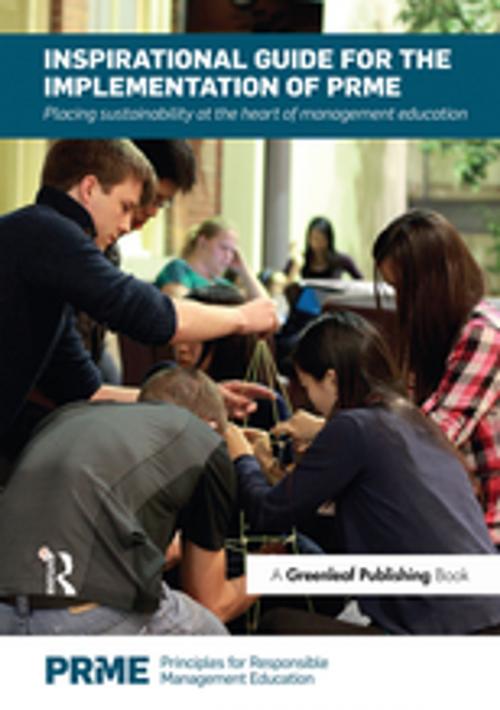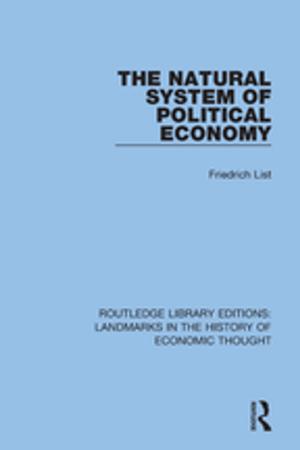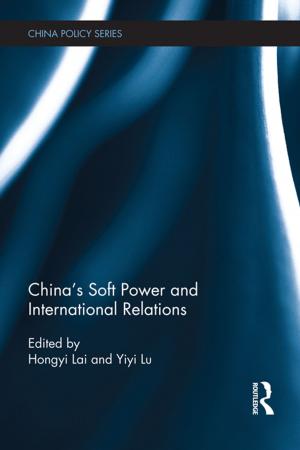Inspirational Guide for the Implementation of PRME
Placing Sustainability at the Heart of Management Education
Business & Finance, Economics, Sustainable Development, Business Reference, Business Ethics| Author: | ISBN: | 9781351276184 | |
| Publisher: | Taylor and Francis | Publication: | September 8, 2017 |
| Imprint: | Routledge | Language: | English |
| Author: | |
| ISBN: | 9781351276184 |
| Publisher: | Taylor and Francis |
| Publication: | September 8, 2017 |
| Imprint: | Routledge |
| Language: | English |
Since the inception of the United Nations Global Compact-sponsored initiative Principles for Responsible Management Education (PRME) in 2007, there has been increased debate over how to adapt management education to best meet the demands of the 21st-century business environment. While consensus has been reached by the majority of globally focused management education institutions that sustainability must be incorporated into management education curricula, the relevant question is no longer _why_ management education should change, but _how_. Although the PRME initiative is set to increase to 1,000 signatories by 2015, it is equally important for PRME to cultivate actively engaged participants. Therefore, the next step is for current participants to transition from a global learning community to an action community. For this purpose, the PRME Secretariat invited a small group of experts to coordinate an Inspirational Guide for the Implementation of PRME which was presented at the 3rd Global Forum for Responsible Management Education, the official platform for management-related Higher Education Institutions (HEIs) at both the Global Compact Rio+20 Corporate Sustainability Forum and the UN Conference on Sustainable Development – Rio+20 – in June 2012 in Rio de Janeiro. The Guide answers the most frequently asked questions concerning the implementation of PRME by highlighting real-world examples from the most engaged signatories. The exercise has proven successful, and this publication features 63 case stories from 47 institutions, representing 25 countries across Asia, Oceania, the Americas, Europe, the Middle East and Africa. They are the real actors in this effort, and their stories are truly inspirational. Their experiences are classified into six sections, which address the Six Principles of PRME (Purpose, Values, Method, Research, Partnership, and Dialogue) as well as important related aspects, such as how to get started, how to successfully report on PRME adoption, and so on. The full richness of experiences set forth in this Guide is captured only by reading the wealth of innovative practices found in each case.
Since the inception of the United Nations Global Compact-sponsored initiative Principles for Responsible Management Education (PRME) in 2007, there has been increased debate over how to adapt management education to best meet the demands of the 21st-century business environment. While consensus has been reached by the majority of globally focused management education institutions that sustainability must be incorporated into management education curricula, the relevant question is no longer _why_ management education should change, but _how_. Although the PRME initiative is set to increase to 1,000 signatories by 2015, it is equally important for PRME to cultivate actively engaged participants. Therefore, the next step is for current participants to transition from a global learning community to an action community. For this purpose, the PRME Secretariat invited a small group of experts to coordinate an Inspirational Guide for the Implementation of PRME which was presented at the 3rd Global Forum for Responsible Management Education, the official platform for management-related Higher Education Institutions (HEIs) at both the Global Compact Rio+20 Corporate Sustainability Forum and the UN Conference on Sustainable Development – Rio+20 – in June 2012 in Rio de Janeiro. The Guide answers the most frequently asked questions concerning the implementation of PRME by highlighting real-world examples from the most engaged signatories. The exercise has proven successful, and this publication features 63 case stories from 47 institutions, representing 25 countries across Asia, Oceania, the Americas, Europe, the Middle East and Africa. They are the real actors in this effort, and their stories are truly inspirational. Their experiences are classified into six sections, which address the Six Principles of PRME (Purpose, Values, Method, Research, Partnership, and Dialogue) as well as important related aspects, such as how to get started, how to successfully report on PRME adoption, and so on. The full richness of experiences set forth in this Guide is captured only by reading the wealth of innovative practices found in each case.















